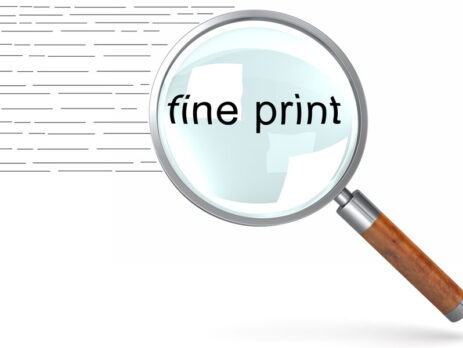How the Fine Print in an Acquisition Offer Can Leave You Penniless
“Fascinating story about a business owner named Ana Chaud who boldly grew her Garden Bar restaurant from one small location to 10,” shares Sam Thompson, a Minneapolis business broker and president of M&A firm Transitions In Business. “Great insight into how she raised money to scale her business. Ana explains what she would have done differently as she raised the money and eventually sold her business.”
Before the pandemic, fancy salad bars were popping up in major cities across the US, making the category one of the fastest-growing sectors of the restaurant industry. Despite their popularity in major cities, when Ana Chaud moved to Portland, Oregon, she was surprised to see a shortage of good salad options.
Chaud started Garden Bar to offer fast-casual salads to Portland hipsters. The first store was a success, but the restaurant industry’s thin margins inspired her to grow to get some economies of scale. She raised two rounds of outside capital, including one from a group of convertible note holders. Chaud skimmed the term sheet but trusted her investors, so she didn’t think much about a clause that gave note holders 2.5 times their money if Chaud sold the business before the note expired.
Chaud continued to grow to nine locations with a 10th on the way when she attracted an exciting offer from Evergreens, Seattle’s fastest-growing salad restaurant. Things were going according to plan right up until Chaud’s lawyer pointed out the investor’s clause, which had the potential to wash out all her equity.
In the end, Chaud agreed to give all the proceeds of her acquisition to her investors and negotiated an earn-out, which would allow her the possibility of a return on her years of sacrifice. Then COVID-19 hit, Portland restaurants were ordered closed, and Chaud ended up with nothing.
Despite the catastrophic financial outcome for Chaud, Garden Bar offers three priceless lessons for aspiring value builders:
- Ideas Are Overrated: Many would-be founders sit on the sidelines and never start a business for fear of not having a winning idea. As Chaud’s example shows, you don’t need a brand-new concept to have a successful business. In many cases, being the first to bring a successful idea to your city is all you need.
- Do Something Unique: As Chaud began to grow, competitors sprang up, but Chaud had something that made her chain different. She offered customers a re-usable container they could put a deposit on. When they returned the dirty box to any one of her 9 locations, Garden Bar made their next salad in a newly cleaned container, putting the dirty bowl in the wash. It was one of the reasons Garden Bar was so famous among Oregon’s eco-friendly diners.
- Read the Fine Print: Chaud glossed over the 2.5 x return clause in her convertible note agreement, reasoning she trusted the people drafting it. In hindsight, Chaud wishes she’d paid more attention and had impartial advice.
This episode also comes complete with definitions for some of the typical investor lingo you’ll run into if you choose to raise money, including buzzwords like: “convertible notes,” “preferred vs. common shareholders,” “pre and post-money valuation”, “shareholder waterfalls.”

